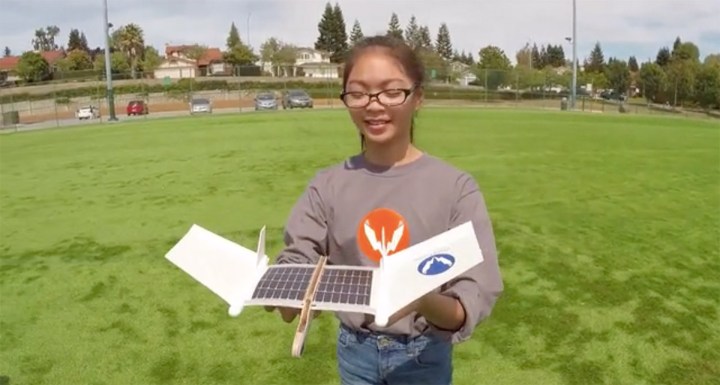
The Volta Flyer sets itself apart from other hobby planes by using a solar panel to provide the power necessary for motorized flight. No batteries are required to turn the prop, just find some good ole sunshine and your child will be launching his plane skyward. The assembly also is very child-friendly, requiring no glue, special tools, or special skills. It really is as easy as following the instructions and clicking the pieces together. Assembly takes less than 20 minutes, which gives you as much time as you need to decorate the plane with stickers, markers, and more. Once assembled, you only need to wait 90 seconds for it to charge in the sun before it is ready to fly.
ToyLabs has turned to Kickstarter to fund its kit plane idea and is seeking to raise $39,000 to start mass production of the components. For your pledge of $40, you will receive all the parts you need to assemble the plane, including a flexible amorphous silicon solar panel, a fuselage with wing receiver and embedded electronics, two sets of wings and vertical stabilizers, a set of wing joiners, and a set of sticker decals to customize the Flyer. Besides the Flyer, ToyLabs also is selling its Volta Racer, a solar-powered race car for $25. If you want both the car and the plane, you can purchase the pair in the Volta Duo bundle for $65, or you can choose a classroom kit, which contains seven copies of each kit vehicle for $510.




